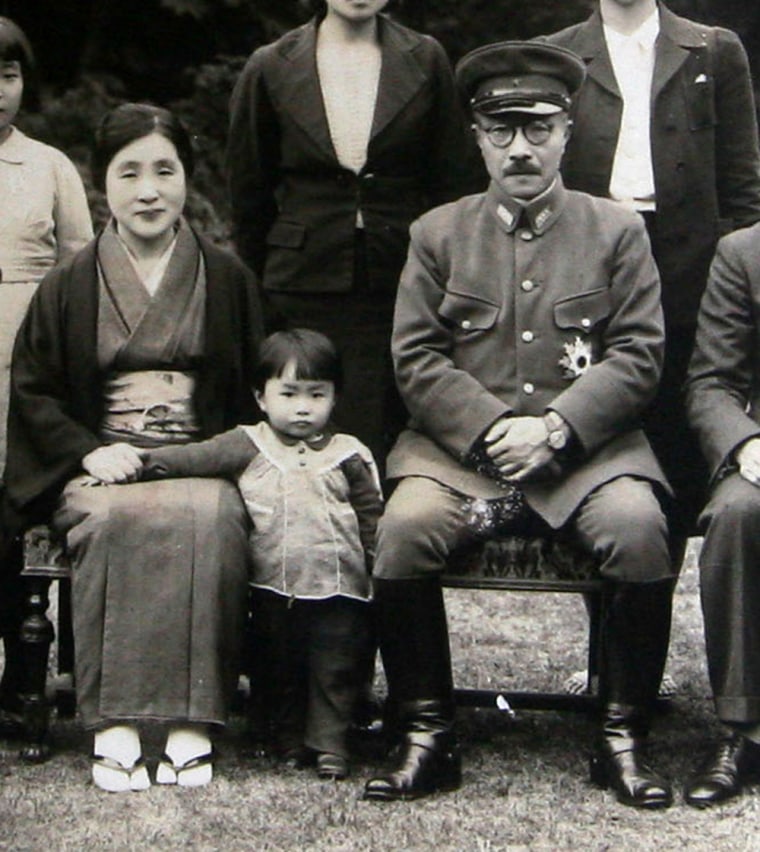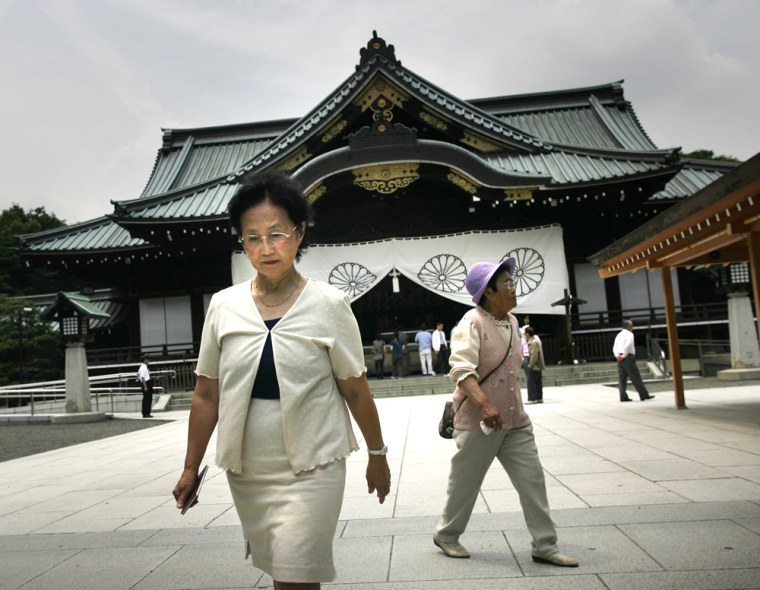Every morning for the last three months, Yuko Tojo has prayed at a war shrine for Japan’s fallen soldiers — including her grandfather, Gen. Hideki Tojo, the executed World War II premier who ordered the 1941 attack on Pearl Harbor.
Yuko, 68, will fight her own battle in July, when she competes as an independent in elections for parliament’s upper house. An ultra-nationalist, her mission is to restore Japan’s honor by scrapping its pacifist constitution and enacting a full-fledged military, giving the country the clout she says it deserves.
“I was born as Hideki Tojo’s granddaughter, and as a Japanese national. I cannot see Japan go on like this, with no confidence or pride,” Tojo told The Associated Press. “I do not think the war dead gave their lives for a country like this.”
Her views are part of a resurgent right-wing fringe in Japan that espouses a hard line in territorial disputes with the country’s neighbors and a rose-tinted view of its past militarism. However, she may be too far to the right even for Japan’s nationalists, including Prime Minister Shinzo Abe, who have distanced themselves from her.
Hideki Tojo, Japan’s prime minister from 1941 to 1944, is widely remembered as a warmonger who was behind Tokyo’s invasions of its Asian and Pacific neighbors. It was Tojo who also ordered the Pearl Harbor attack that killed 2,388 American soldiers and brought the U.S. into World War II. The general was hanged by the Allies in 1948 after the Tokyo war crimes tribunal.
His granddaughter has defended the general’s legacy, contending he reluctantly took Japan to war after a U.S. oil embargo threatened the country’s survival.
“Japan did not fight a war of aggression. It fought in self-defense,” she said. “Our children have been wrongly taught that their ancestors did evil things, that their country is evil. We need to give these children back their pride and confidence.”
Tojo’s views make her among the most nationalistic candidates in July’s parliamentary elections.
Opposes U.S.-drafted constitution
The former teacher said she considers the 1947 U.S.-drafted pacifist constitution as a creation of an occupation army and favors throwing it out and starting from scratch, rather than merely revising it as Abe has called for.
Tojo also argues that Japan needs a full-fledged military, something the country gave up to take responsibility for World War II. The military now is known as the Self-Defense Forces and it is prohibited from taking offensive action.

“It’s natural that Japan should have an army commensurate with its world standing, especially with China’s growing military might,” she said. “But some here are critical even of keeping a humble Self-Defense Force. What’s wrong with this country?”
Tojo’s support is mixed among voters in Tokyo, where she plans to run for office. Even conservatives appear hesitant to back her.
“I support her ideals,” said Hiroshi Watase, 70, a retiree. “But I’m not sure whether she would be the best person to become a politician,” he added, citing her lack of experience.
Abe also has pushed for Japan to be more assertive in its foreign policy and backed changes to the constitution to give the military a larger global role. In addition, his ruling Liberal Democratic Party pushed through a law in December requiring schools to teach patriotism.
No love from Abe
But Abe — himself a grandson of an imprisoned war criminal — has not backed Tojo in the July 22 vote, and LDP officials say they have no interest in working with her.
That isolation could cost her at the polls.
“Tojo’s nationalistic attitude might appeal to certain elements of the population, but most Japanese do not sympathize with her views. She has no chance at all at the elections,” political commentator Minoru Morita said.
Tojo, however, said her decision to run reflects a personal mission, as well as a political one. One of her top priorities is to publicly urge Abe to pay his respects to her grandfather and others at the Yasukuni war shrine, which is vilified by China and South Korea as a reminder of Japan’s militaristic past.
Abe’s predecessor, Junichiro Koizumi, repeatedly prayed at the shrine. But Abe, eager to mend ties with Japan’s neighbors, has kept away.
“In Japan, there are no war criminals,” Tojo insists. “Every one of those enshrined at Yasukuni died fighting for their country, and we should honor them.”
